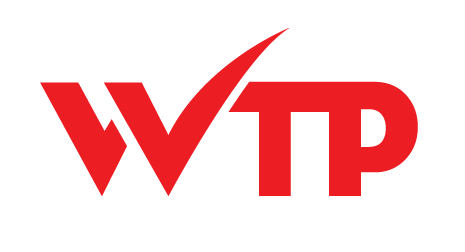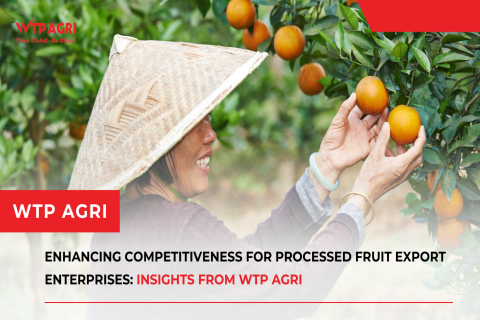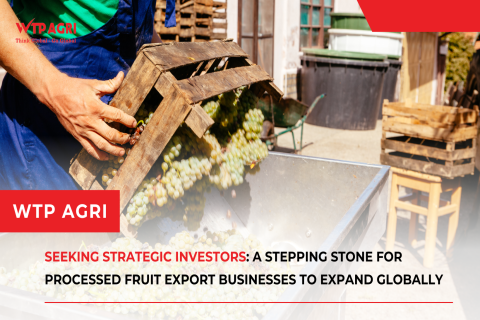Bringing dried fruit products into the United States
The US dried fruit market was valued at USD 10.43 billion in 2020 and is expected to reach USD 15 billion by 2027 with a CAGR of 5.34% from 2020 to 2027. This presents an attractive market for agricultural export businesses, but success requires a deep understanding of the market and compliance with regulations and procedures, thereby building a suitable business strategy. Explore with WTP Agri to the end of the article so you don't miss out on valuable information for your business on this issue.
Overview of the US dried fruit import market
Dried fruit is currently one of the most imported items by the US, ranking third after fresh and frozen fruit. In 2019, according to the Vietnam Trade Office in the US, the value of US dried fruit imports reached $1.6 billion, a 4.5% increase from 2018. The most popular types include raisins, dried bananas, dried pineapples, dried apples, dried mangoes, dried figs, etc. Major supplying countries to the US market include Turkey, Chile, Thailand, China, Mexico, the Philippines, among others.
The impressive figures can be attributed to the significant increase in demand for convenient and ready-to-eat food products in recent years, driven by a busy lifestyle. More importantly, the growing health consciousness has shifted consumers towards dried fruit instead of unhealthy snacks in their healthy lifestyles. Additionally, the cultural diversity and openness in the US create opportunities for tropical fruits and specialties from regions such as Vietnam and Thailand.
However, while the opportunities are vast, exporting to the US market also poses many challenges. This includes compliance with strict standards regarding cultivation regions, product quality, customs, and competition with numerous strong competitors worldwide in this lucrative market.
>>> See more: Dried Fruit Export to the US: Opportunities, Challenges, and Tips
Issues to keep in mind when exporting dried fruit to the US
1. Comply with 5 Basic Export Standards:
- Quality and Labeling Standards: Imported products must meet the standards set by the US Department of Agriculture (USDA) and must be labeled with the country of origin (COOL) as per the 2002 Farm Security and Rural Investment Act.
- Food Safety Standards: Adherence to regulations on food safety, including restrictions on the use of prohibited pesticides, limits on pollutant levels in products, and compliance with food safety hygiene procedures. Maximum residue levels for pesticides are set by the Environmental Protection Agency (EPA), monitored by the Food and Drug Administration (FDA) at the import site.
- Product Origin Traceability Standards: Register and provide detailed product information to the Food and Drug Administration (FDA).
- Plant Inspection Standards: Inspectors of the Animal and Plant Health Inspectorate must check and certify all batches before customs declaration. Non-compliant batches will be returned to the exporting country or destroyed.
- Customs Declaration Standards: Customs can only grant import permits for products entering the US after inspections by APHIS and FDA at the point of import. To expedite processing, exporters can complete certain customs procedures before shipping.
.png)
2. Develop a Competitive Pricing Strategy:
In a fiercely competitive environment, pricing is one of the decisive factors for product success. From selecting raw materials to optimizing the production process, as well as offering effective solutions for transportation, import taxes, and related costs, every aspect requires careful consideration. The goal is to minimize any potential risks and ensure that the product maintains a competitive price, sustaining strong competitiveness in the market.
>>> See more: How to Optimize the Juice Concentrate Price for Your Business
3. Choose Appropriate Distribution Channels:
The US, with its developed and diverse distribution systems, includes large supermarket chains like Walmart, Whole Food, Costco,..., single-store grocery shops in commercial areas, restaurant and hotel systems, and online sales channels with home delivery services. Therefore, exporting businesses need to conduct thorough market research and clearly determine which distribution channels are suitable for their products to reach customers most efficiently, thus promoting the development process. Furthermore, building strong relationships with distributors and supply chains is crucial to ensuring a smooth distribution process.
Vietnam's Potential in Exporting Dried Fruit to the US
.png)
According to the Vietnam Trade Office in the US, in 2019, Vietnam exported dried fruit to the US worth $3.8 million, capturing a 0.24% market share and ranking 18th in the list of suppliers to this market. The main products include dried mangoes, dried bananas, dried pineapples, and dried papayas. To enhance exports to the US, Vietnam needs to leverage its strengths further, including:
- Diverse Fruit Varieties: Blessed with fertile soil and diverse climates suitable for growing various tropical fruits, Vietnam can offer unique and appealing products to US consumers that are not available locally.
- Stable Supply Source: The advantages in cultivation areas provide abundant raw materials for modern factories in Vietnam to continuously produce not only high-quality but also large quantities of products.
- Modern Logistics System: Vietnam's extensive coastline and efficient seaport system with reasonable policies and clear insurance terms help minimize many risks during transportation. Moreover, Vietnam has surpassed the UK to be among the top 7 reputable logistics trade partners in 2022, demonstrating the quality and capacity of the country's logistics system.
- Competitive Pricing: Thanks to the support from the governments and trade collaborations between Vietnam and the US, along with long-standing experience in the production field, Vietnam can offer competitive prices in the market.
WTP Agri, a dried fruit supplier from Vietnam, has capitalized on its strengths in clean raw materials and modern factories. We take pride in producing products that meet strict global standards such as ISO, IFS, HACCP, and are ready to export to the US If you are seeking a reliable partner in conquering the international dried fruit market, WTP Agri is your top choice.
Do not hesitate to reach out to us for further insight and exploration into how we may contribute to the sustainable development of your enterprise. Contact us by filling out the contact form which you can find on this page. Either get in touch with our team at agri.crm@wtp.vn or give us a call on (+84)971 279 099. And remember we can also provide tailored service if you need it.
News Related
- Dried Fruits Import: Attractive Business Opportunity for International Businesses
- 5 delicious and refreshing nata de coco drink recipes
- A step forward in bilateral cooperation between Vietnam - the United States
- Advantages of shifting the fruit juice supply chain to Vietnam
- Aloe Vera Juice – Manufacturer and Supplier

 Vietnamese
Vietnamese  Korean
Korean Japanese
Japanese Chinese
Chinese
.png)


